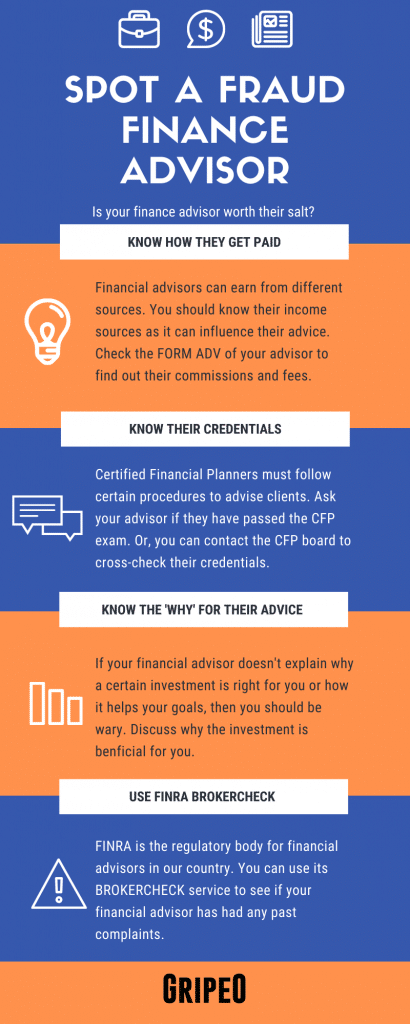Marcus A. Beasley

Background Of Marcus A. Beasley (CRD No. 3157595)
Beasley entered the securities industry in 1999 and has been registered as an Investment
Company and Variable Contracts Products Representative (IR), with the following
FINRA members:
AIG Retirement Advisors, Inc. (AIG) January 2002 – December 2008
NYLIFE Securities LLC (NYLIFE) March 2009 – June 2012
Allstate Financial Services, LLC (Allstate) April 2014 – November 2017
From January 2018 to July 2019, Beasley was registered as an IR, among other
registration categories, through his association with W&S Brokerage Services, Inc.
(W&S or the firm), a FINRA member.
On July 12, 2019, W&S filed a Uniform Termination Notice for Securities Industry
Registration Form U5 stating that Beasley had been terminated for engaging in an
undisclosed outside business, soliciting investors in that business, and lacking candor
during the firm’s investigation into that activity.
In September 2019, Beasley became associated with another FINRA member firm. In
October 2019, Beasley voluntarily resigned from that firm and is currently not associated
with a FINRA member. Pursuant to Article V, Section 4 of FINRA’s By-Laws, FINRA
retains jurisdiction over Beasley.
Respondent does not have any relevant disciplinary history.
Activity(s) Reported – Marcus A. Beasley
Beasley engaged in outside business activities in violation of NASD Rules
3030 and 2110, and FINRA Rules 3270 and 2010.
NASD Rule 3030 and FINRA Rule 3270 prohibit a registered representative from
engaging in any business activity outside the scope of his or her employment without
providing written notice to his or her FINRA member employer.
FINRA Rule 2010 (and its predecessor, NASD Rule 2110) require members, in the
conduct of their business, to observe high standards of commercial honor and just and equitable principles of trade. A violation of NASD Rule 3030 and FINRA Rule 3270 also
constitutes a violation of FINRA Rule 2010 or NASD Rule 2110.
At all relevant times, the written supervisory procedures of Beasley’s employer member
firms AIG, NYLIFE, Allstate, and W&S required registered representatives to disclose to
the firm, in writing, any outside business activities prior to engaging in such activity.
Beasley incorporated Beasley Financial Group (BFG) as a limited liability company in
Maryland in July 2005, serving as the chief executive officer of the company. The
incorporation documents for the company stated that the purpose of BFG was to market
financial services products to groups, associations, clubs, organizations, companies,
families and individuals. In February 2018, while associated with W&S, Beasley also
incorporated Beasley Financial Group Holdings LLC (BFG Holdings), whose stated
purpose was to hold and trade assets of BFG. Beasley personally invested $40,000 in
BFG and attempted to establish the company, through its website, as a financial services
marketplace to provide financial counseling services and to connect subscribers with
other financial services. In exchange, the company hoped to earn periodic subscriber fees.
It also used its website and other means to try to obtain partners and/or investors. BFG
was not able to obtain subscribers or investors.
Beasley did not provide written notice to or seek approval from his FINRA member
employers to engage in the outside business activities of BFG, from July 2005 to July
2019, or BFG Holdings, from February 2018 to July 2019. In November 2018 and April
2019, Beasley falsely attested to the firm in written certifications that he was not
engaging in any outside business activities.
From January 2006 to September 2018, Beasley also engaged in outside business
activities in connection with a ministry in which he served as the lead organizer and
administrator. The ministry’s activities included speaking engagements to church
audiences regarding financial investment subjects for which Beasley occasionally
received fees as well as the marketing and sale of a financial services book Beasley had
written, for which he also occasionally received fees. Beasley did not disclose this
business to any of his FINRA member firms until he disclosed it to W&S in April 2019.
Therefore, Respondent violated NASD Rule 3030, (for conduct before December 15,
2010), FINRA Rule 3270, (for conduct on and after December 15, 2010), NASD Rule
2110 (for conduct before December 15, 2008) and FINRA Rule 2010 (for conduct on and
after December 15, 2008) by engaging in three outside business activities without
providing prior written notice to his FINRA member employers AIG, NYLIFE, Allstate
and W&S, during the periods for which he was associated with those firms.
Beasley made a false statement to potential investors and subscribers in
BFG in violation of FINRA Rule 2010.
Making a misrepresentation to potential investors and subscribers violates FINRA
Rule 2010.
During June and July 2019, while BFG was soliciting potential partners and investors,
Beasley stated on the BFG website that, “[b]ased on industry standards and company
projections, the average annual gross income for [partners in BFG] is projected to be
anywhere between $500 and $2,000.” This statement was false and misleading in that
BFG did not have any partners who generated any revenue at any time through BFG and
there was no factual basis for this income projection. Therefore, Respondent violated
FINRA Rule 2010.
Beasley violated FINRA’s content standards for communications with the
public under FINRA Rules 2210 and 2010.
FINRA Rule 2210(d)(1)(B) provides that no member may make any false, exaggerated,
unwarranted, promissory or misleading statement or claim in any communication, or
publish any communication that the member knows or has reason to know contains any
untrue statement of a material fact or is otherwise false or misleading.
FINRA Rule 2210(d)(1)(A) requires all member communications with the public
to be fair and balanced, provide a sound basis for evaluating the facts the
securities or products being discussed, and not omit material information which
would cause the communications to be misleading.
A violation of FINRA Rule 2210(d)(1)(B) or FINRA Rule 2210(d)(1)(A) also
constitutes a violation of FINRA Rule 2010.
From September 2018 to July 2019, Beasley established and maintained the BFG website
and published that BFG was “[a] Brokerage, Financial Advisory and Consulting Firm.”
Because BFG was not a broker-dealer, Respondent’s claim was false and misleading in
violation of FINRA Rules 2210(d)(1)(B) and 2010.
In April 2019, Beasley solicited investors on an outside social media website to invest
$250,000 in BFG in exchange for a 20% equity stake in the company. The solicitation
was unclear about what type of transaction was being offered, or how it was structured,
and therefore failed to provide a sound basis for evaluating the investment and omitted
significant, material information, causing the communication to be misleading in
violation of FINRA Rules 2210(d)(1)(A) and 2010. The solicitation further did not
properly identify or disclose the potential risks and investment considerations of the
proposed investment. At no time thereafter did Beasley provide any additional
information to potential investors about his investment proposal. Therefore, Respondent’s
April 2019 investor solicitation violated FINRA Rules 2210(d)(1)(A) and 2010 by failing
to give a potential investor a sound basis for evaluating the investment and omitting
significant, material information, causing the communication to be misleading.
In the same solicitation, Beasley stated that BFG had 25 partners across multiple states.
This statement was false and misleading because BFG did not have any partners.
Therefore, Respondent violated FINRA Rules 2210(d)(1)(B) and 2010.
Can you expose the broker trying to trick you?
FINRA offers the free web tool BrokerCheck, which allows users to check a broker’s credentials, registration, and employment history. The disclosure part of BrokerCheck includes information on client conflicts, disciplinary proceedings, and specific financial and legal issues on the broker’s record.
Penalties And Sanctions
A suspension from association with any FINRA member in any capacity for seven months; and A fine of $12,500.
Respondent understands that if he is barred or suspended from associating with any
FINRA member, he becomes subject to a statutory disqualification as that term is defined
in Article III, Section 4 of FINRA’s By-Laws, incorporating Section 3(a)(39) of the
Securities Exchange Act of 1934. Accordingly, he may not be associated with any
FINRA member in any capacity, including clerical or ministerial functions, during the
period of the bar or suspension. See FINRA Rules 8310 and 8311.
The fine shall be due and payable either immediately upon reassociation with a member
firm, or prior to any application or request for relief from any statutory disqualification
resulting from this or any other event or proceeding, whichever is earlier.
Respondent specifically and voluntarily waives any right to claim an inability to pay, now
or at any time hereafter, the monetary sanction imposed in this matter.
Recent Illegal Activity(s)Of The Individual/Firm
Between July 2005 and July 2019, Beasley engaged in three outside business activities,
two related to financial services, and the other a ministry, without providing prior written
notice to his member firm employers in violation of NASD Rules 3030 and 2110 and
FINRA Rules 32701 and 2010.2
Between September 2018 and July 2019, Beasley also operated an unapproved website
to market the financial services company and to try to raise capital for his unapproved
outside business. Beasley misrepresented on this website during June and July 2019 that
the average annual income for the business partners was projected to be between $500
and $2,000, which was not true because the company had not generated any business
revenue for any partners and did not have any investors. As a result, Beasley violated
FINRA Rule 2010.
The website further described the business as “[a] Brokerage, Financial Advisory and
Consulting Firm” even though the business was not a broker-dealer, in violation of
FINRA Rules 2210(d)(1)(B) and 2010. Additionally, in April 2019, Beasley solicited
investors on a social media website to invest $250,000 in exchange for a 20% equity
stake in the business. This solicitation failed to provide a sound basis for evaluating the
investment and omitted significant, material information, causing the communication to
be misleading in violation of FINRA Rules 2210(d)(1)(A) and 2010. Beasley further
stated that the business had 25 partners across multiple states when in fact he did not
have any. As a result, this statement was false and violated FINRA Rules 2210(d)(1)(B)
and 2010.
NASD Rule 3030 was superseded by FINRA Rule 3270 effective December 15, 2010.
2 NASD Rule 2110 was superseded by FINRA Rule 2010 effective December 15, 2008.
How To Spot A Fraud Finance Advisor (Infographic)

Help For Victims Of Marcus A. Beasley
If you have lost funds because of misrepresentation, unsuitable investment, or unsuitable investment strategy from Marcus A. Beasley. Then you can take legal action and get justice. Fraud, Malpractice & dereliction of duty should not be taken lightly, especially in this industry. We highly suggest that you notify authorities or seek legal action if your financial advisor or brokerage firm fails to abide by FINRA’s rules are regulations.
Financial advisors are regulatory & legally obligated to suggest (recommend) the most suitable investments/investment strategies to their clients. Their suggestions should have their client’s best interests and should be appropriate for their client’s goals and needs. Similarly, the brokerage firm which hires financial advisors also has a regulatory & legal obligation to keep a close watch and supervise their Financial Advisors’ practices & behavior. They need to make sure that the financial advisor is not being manipulative or having an unreasonable bias towards certain investments. If the financial advisor and/or the brokerage firm breaches these duties, then the client/customer may be entitled to a full or partial recovery of their losses.
Financial advisors need to have the interest of their clients when giving suggestions related to investments and investment strategies. Reasonable basis suitability requires the advisor to do their best to analyze & identify the risks and rewards associated with their suggested investment and/or investment strategy.







